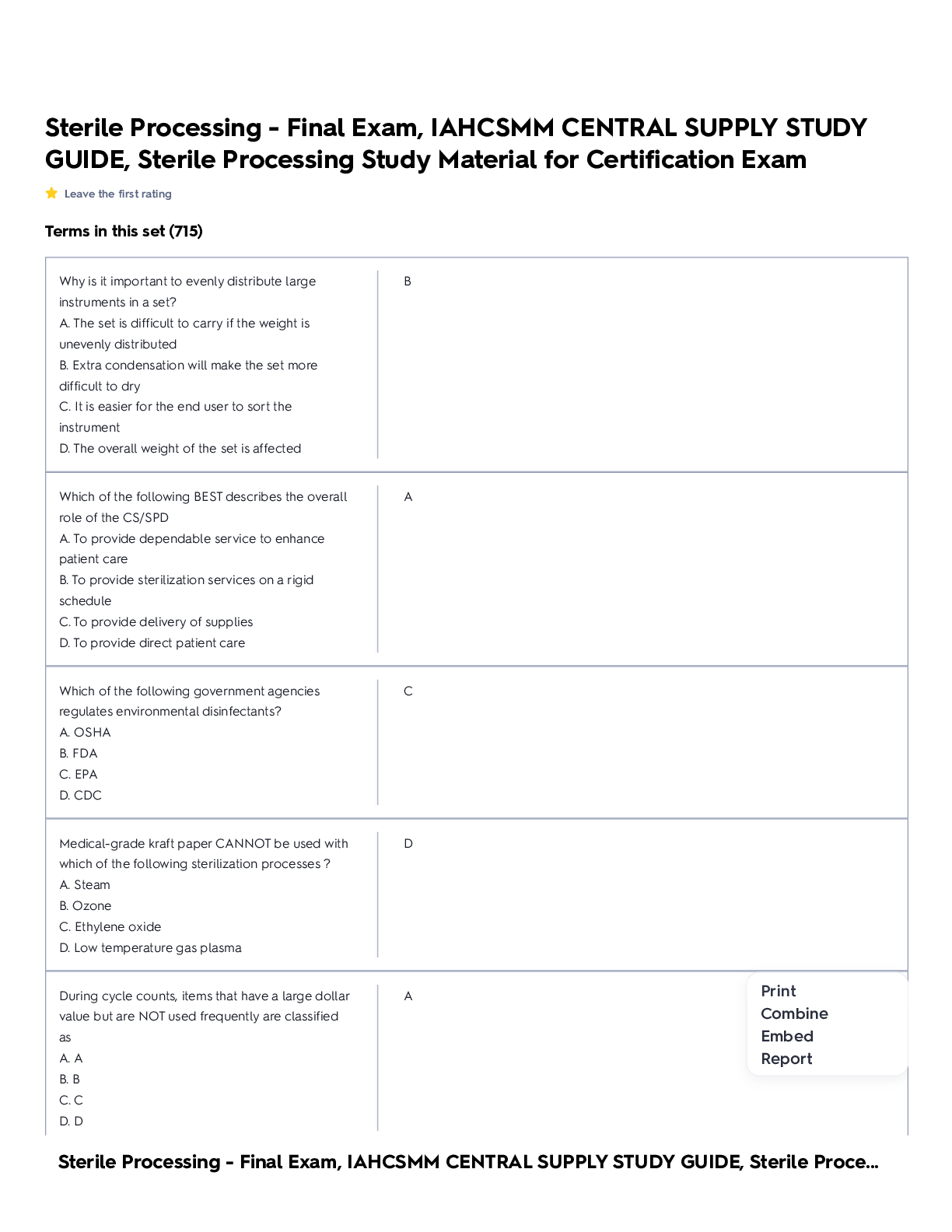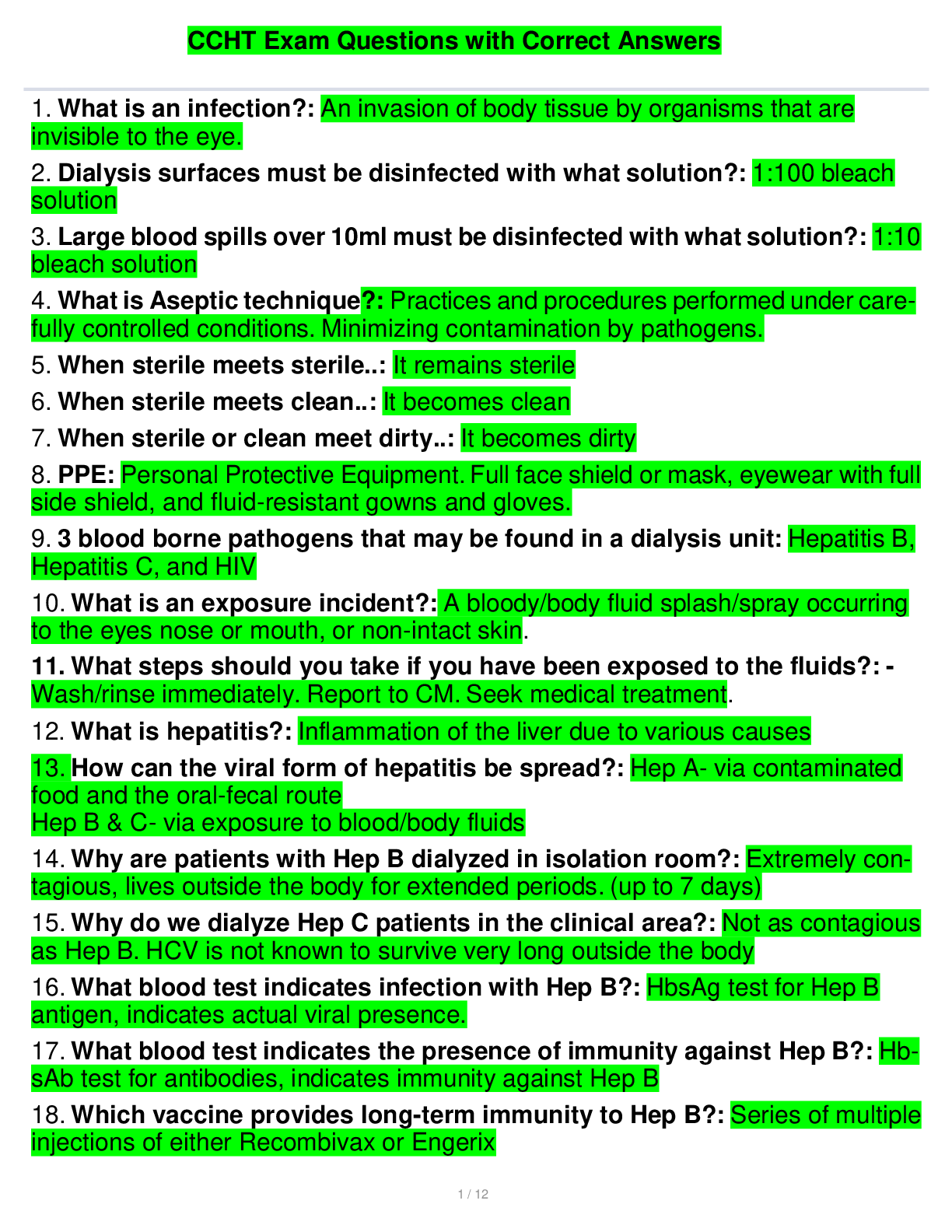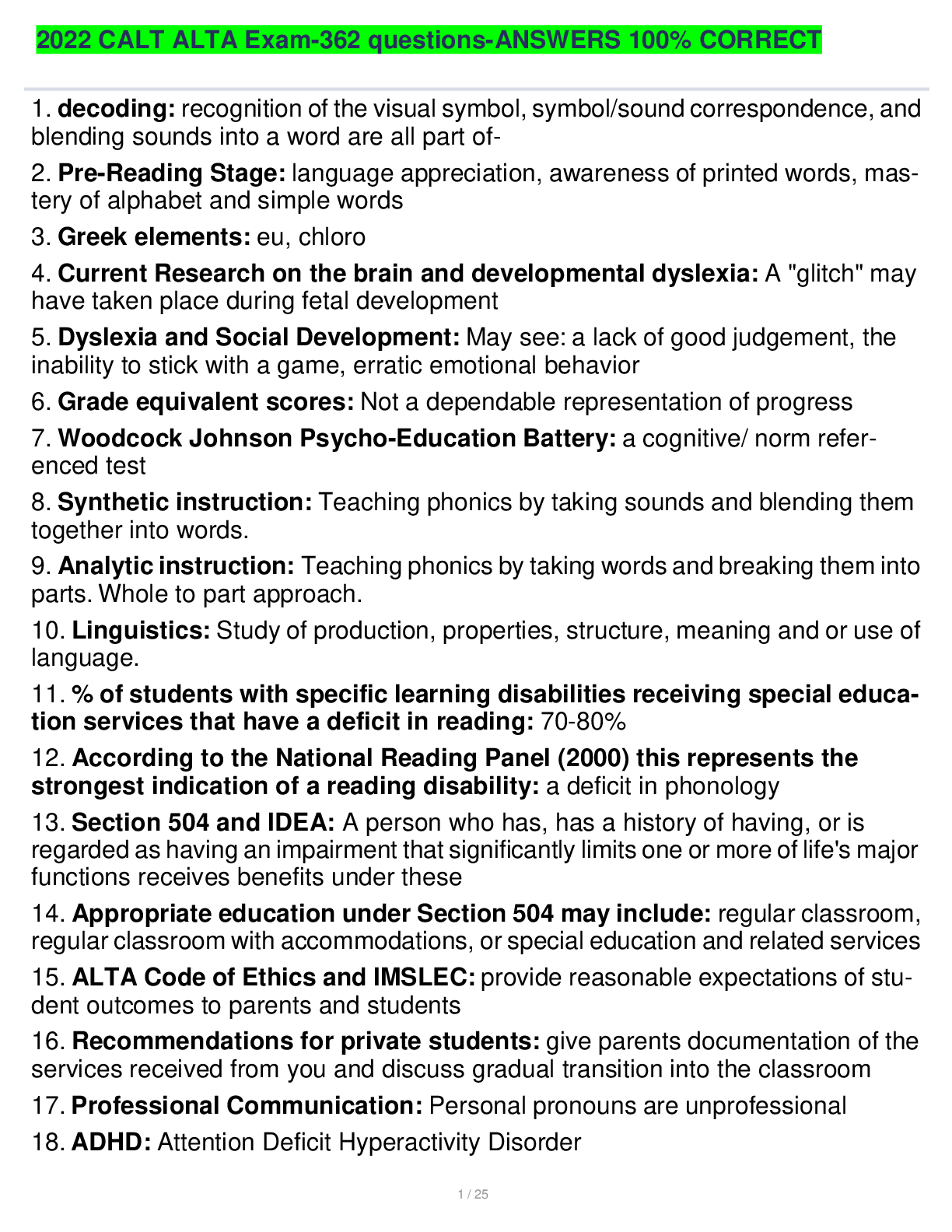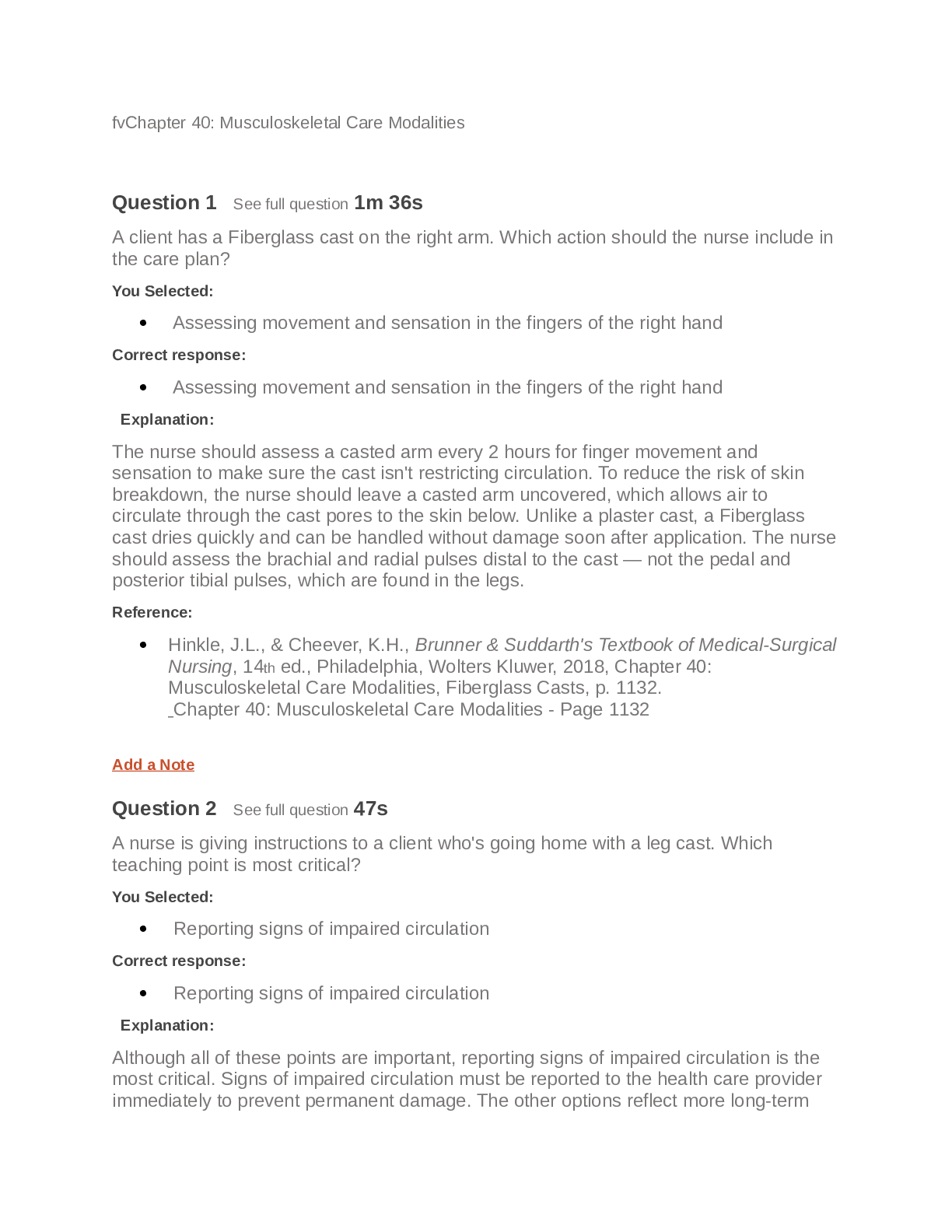*NURSING > QUESTIONS & ANSWERS > Kettering TMC practice exam 100 Questions with Complete Solutions (iii) (All)
Kettering TMC practice exam 100 Questions with Complete Solutions (iii)
Document Content and Description Below
Kettering TMC practice exam 100 Questions with Complete Solutions (iii) 1 / 10 1. A respiratory therapist enters a patient's room during oxygen rounds. The patient has end - stage emphysema and app... ears to be sleeping. The patient doesn't respond to questions and his pulse is 20 bpm. The therapist should immediately. A. Confirm DNR status B. Go get help C. Begin rescue ventilation D. Begin chest compressions: Confirm DNR status 2. Which of the following clinical observations is most commonly associated with right heart failure? A Peripheral edema B. Muscle wasting C. Tracheal deviation D. Skin flushing: Peripheral edema 3. Which of the following is the definitive method of monitoring the effectiveness of equipment sterilization? A. Heat sensitive tape B. Chemical sensitive indicator C. Biologic indicator D.Time and temperature graph: Biologic indicator 4. A patient who is receiving mechanical ventilation requires an FiO2 of 0.70 and 10 cm H2O PEEP to maintain an acceptable PaO2.The patient is restless and has become disconnected from the ventilator circuit several times, during which she experiences cardiac rhythm disturbances. A respiratory therapist should conclude that the patient with benefit from a: A. Sedative B. Mucolytic C. Neuromuscular blocker D. Pulmonary vasodilator: Sedative Lams and Pams 5. What is signs?: What you see 6. What is symptoms?: What the patient tells youKettering TMC practice exam 100 Questions with Complete Solutions (iii) 2 / 10 7. What is the normal Urine output?: 40 ml 8. What is Hypovolemia? What would you recommend?: low CVP Give fluids 9. What is semicomatose?: Patient responds to pain only 10. What is Lethargy/Somnolence? What would you recommend?: Sleepy Consider sleep apnea COPD patients is getting to much oxygen 11. ADL are evaluated using the system: Katz 12. What is orthopnea? What patients would you see this in?: Cannot breathe laying flat Seen in CHF patients 13. What is General Malaise?: Electrolyte imbalance 14. What is dyspnea?: Shortness of breath 15. What is dysphagia?: Having a hard time swallowing [Show More]
Last updated: 2 years ago
Preview 1 out of 10 pages
.png)
Buy this document to get the full access instantly
Instant Download Access after purchase
Buy NowInstant download
We Accept:

Reviews( 0 )
$8.00
Can't find what you want? Try our AI powered Search
Document information
Connected school, study & course
About the document
Uploaded On
Oct 31, 2022
Number of pages
10
Written in
Additional information
This document has been written for:
Uploaded
Oct 31, 2022
Downloads
0
Views
143




 with Complete Solution.png)
 Career Information with Complete Solution.png)


 for E-6 Career Information_watermark.png)







.png)
 A Total Of 100 Questions With Complete Solutions And Verified Answers.png)
 Questions With Complete Solutions And Answers.png)
.png)
.png)
.png)
.png)
.png)

 A Total Of 100 Questions With Complete Solutions And Verified Answers.png)

